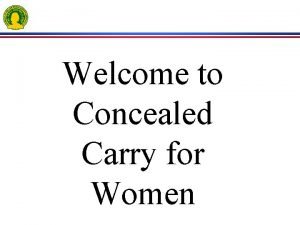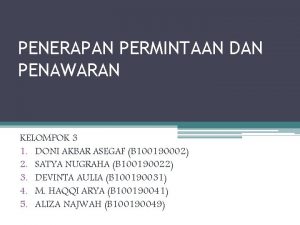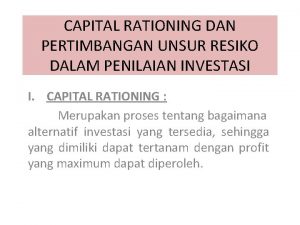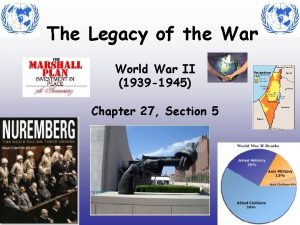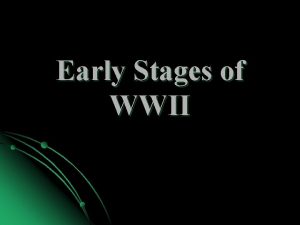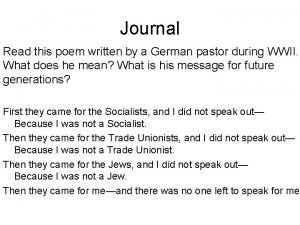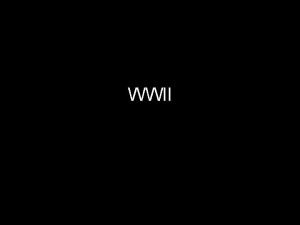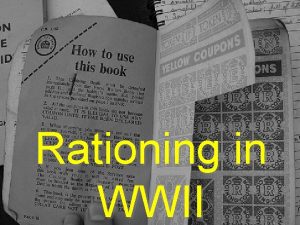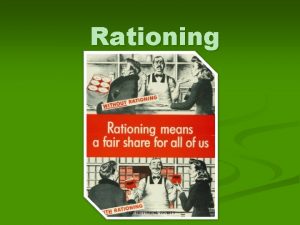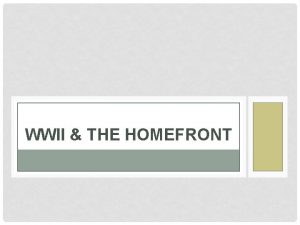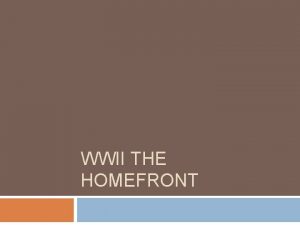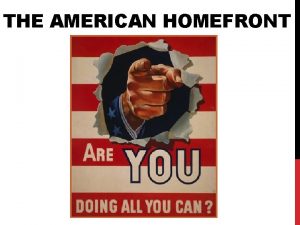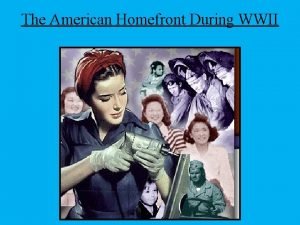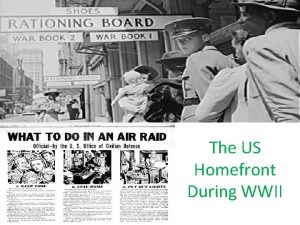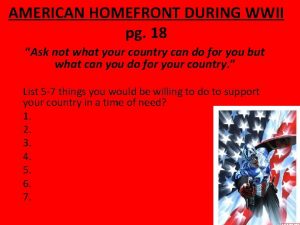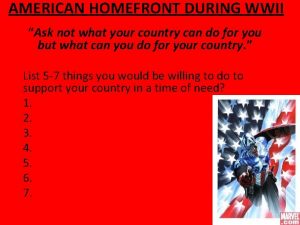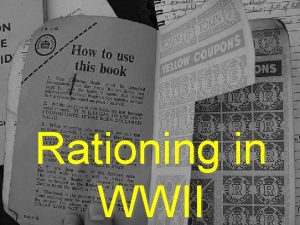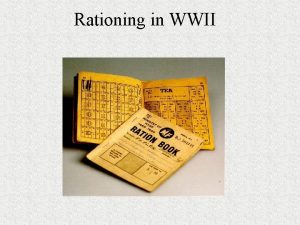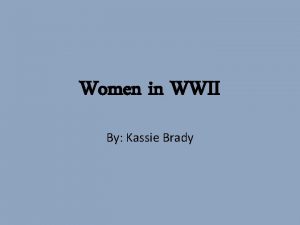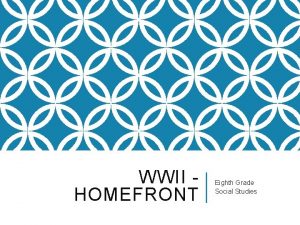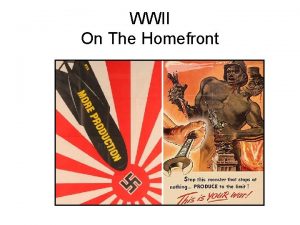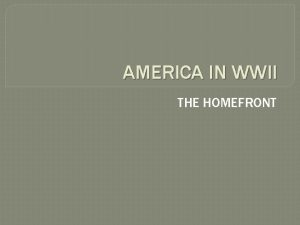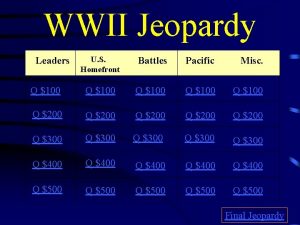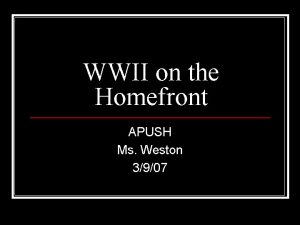The Homefront During WWII Rationing Office of Price




















- Slides: 20

The Homefront During WWII

Rationing • Office of Price Administration sets prices and limits availability of essential items • Meat, sugar, coffee, canned foods, fuel, nylons, & shoes all require ration coupons

War Production Board • Oversees transition to a wartime economy • “Rosie the Riveter” symbolizes female workers

Propaganda • Promotes conservation • War bonds & taxes • Any message to keep Americans focused on the war effort • Often racist or emotional

• African-Americans Serve in segregated units • Face continued discrimination at home • Double-V Campaign: Victory Abroad and at Home! • Continued migration to jobs in Northern cities

Tuskegee Airmen • Before 1940, African Americans were barred from flying for the U. S. military. • In 1941, the Army Air Corps began to train African Americans to fly and maintain combat aircraft. The Tuskegee Airmen included pilots, navigators, bombardiers, maintenance and support staff, and instructors. • The Tuskegee Airmen overcame segregation and prejudice to become one of the most highly respected fighter groups of World War II.


1. What race do you think the owner on Wanto Grocery is? 2. Why do you think he put this sign up? 3. What does it tell you about some white Americans who lived in this neighborhood?

Japanese-Americans



Executive Order 9066 • Issued by President FDR in 1942 • Creates military camps in the west like Manzanar • Japanese Americans relocated to internment camps




Before & After Japanese Internment


Japanese Internment • All Japanese-Americans on West Coast - most were American citizens • 120, 000 imprisoned until 1945 – upheld by Supreme Court • WHY? Discrimination, plus a false belief they were aiding the enemy


 Advances in technology during wwii
Advances in technology during wwii Homefront revolution holster weapon
Homefront revolution holster weapon Homefront wsgc
Homefront wsgc Ibig sabihin ng price floor
Ibig sabihin ng price floor Rationing function of prices
Rationing function of prices Soft capital rationing
Soft capital rationing Penawaran kelompok adalah
Penawaran kelompok adalah Black market
Black market Rationing function of prices
Rationing function of prices Rationing device definition economics
Rationing device definition economics Apa itu capital rationing
Apa itu capital rationing Causes of ww2
Causes of ww2 Wwii phonetic alphabet
Wwii phonetic alphabet Wwii test review
Wwii test review Effects of wwii
Effects of wwii German aggression september 1938
German aggression september 1938 Nye committee
Nye committee Ww2 apush dbq
Ww2 apush dbq Wwii show
Wwii show Wwii
Wwii Wwii picture
Wwii picture

